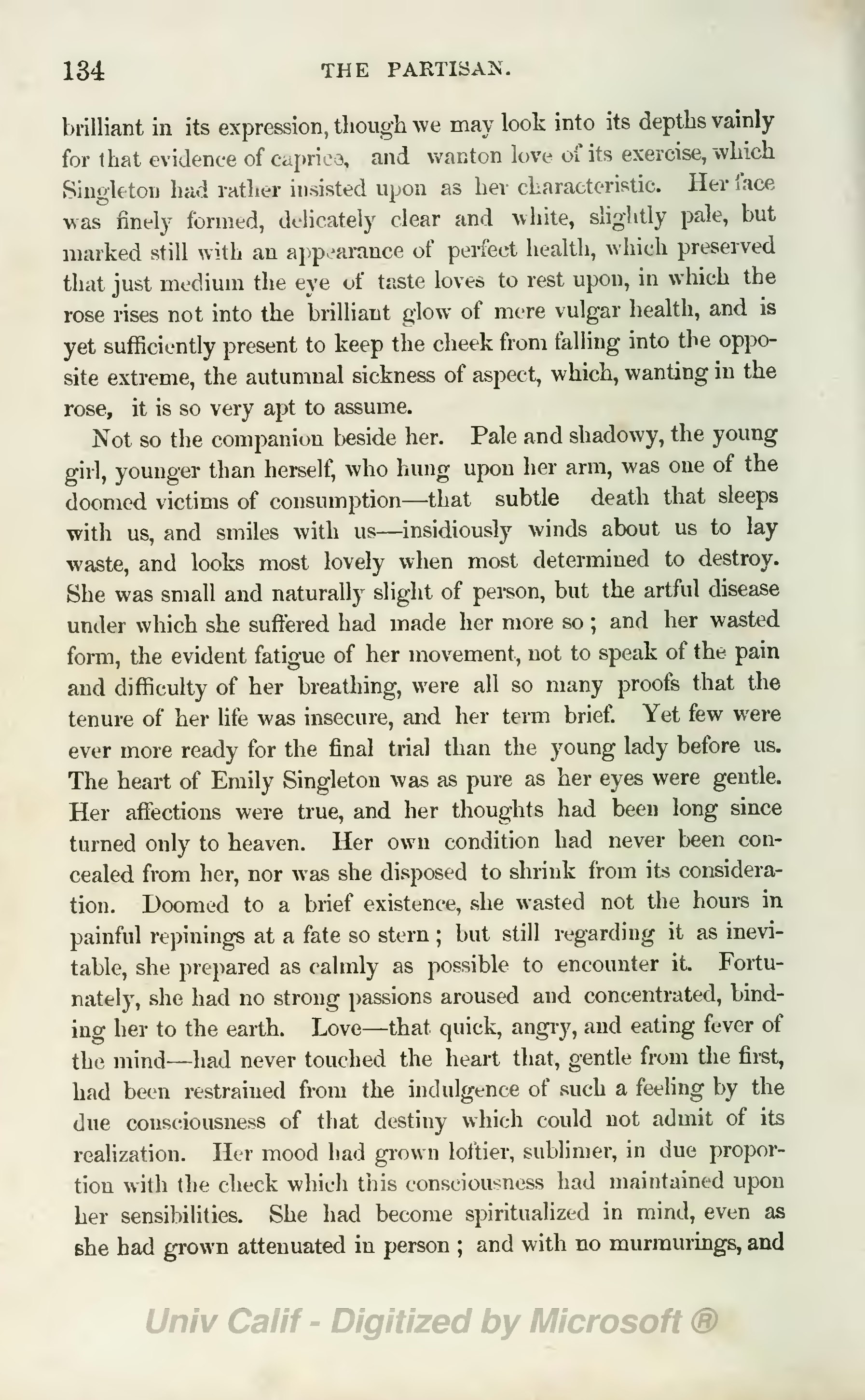brilliant in its expression, though we may look into its depths vainly for that evidence of caprice, and wanton love of its exercise, which Singleton had rather insisted upon as her characteristic. Her face was finely formed, delicately clear and white, slightly pale, but marked still with an appearance of perfect health, which preserved that just medium the eye of taste loves to rest upon, in which the rose rises not into the brilliant glow of mere vulgar health, and is yet sufficiently present to keep the cheek from falling into the opposite extreme, the autumnal sickness of aspect, which, wanting in the rose, it is so very apt to assume.
Not so the companion beside her. Pale and shadowy, the young girl, younger than herself, who hung upon her arm, was one of the doomed victims of consumption—that subtle death that sleeps with us, and smiles with us—insidiously winds about us to lay waste, and looks most lovely when most determined to destroy. She was small and naturally slight of person, but the artful disease under which she suffered had made her more so; and her wasted form, the evident fatigue of her movement, not to speak of the pain and difficulty of her breathing, were all so many proofs that the tenure of her life was insecure, and her term brief. Yet few were ever more ready for the final trial than the young lady before us. The heart of Emily Singleton was as pure as her eyes were gentle. Her affections were true, and her thoughts had been long since turned only to heaven. Her own condition had never been concealed from her, nor was she disposed to shrink from its consideration. Doomed to a brief existence, she wasted not the hours in painful repinings at a fate so stern; but still regarding it as inevitable, she prepared as calmly as possible to encounter it. Fortunately, she had no strong passions aroused and concentrated, binding her to the earth. Love—that quick, angry, and eating fever of the mind—had never touched the heart that, gentle from the first, had been restrained from the indulgence of such a feeling by the due consciousness of that destiny which could not admit of its realization. Her mood had grown loftier, sublimer, in due proportion with the check which this consciousness had maintained upon her sensibilities. She had become spiritualized in mind, even as she had grown attenuated in person; and with no murmurings, and
